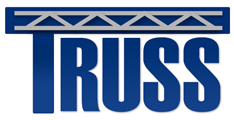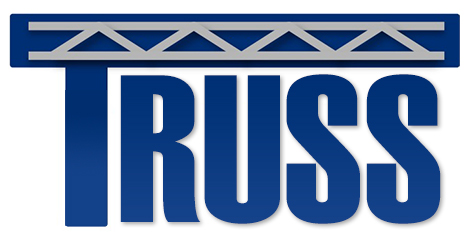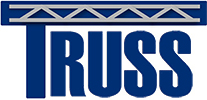The call for applicants to the 14 Early Stage Researcher (ESR) vacancies (PhD students) in TRUSS ITN (one for each of the 14 projects listed under “Available Projects” in the left menu (ESR1 to ESR14)) is now CLOSED.
Each of these vacancies is for a period of 36 months starting in August or September, 2015. The recruitment is done on a competitive basis across all applicants for each project (please note country hosting the ESR project for eligibility purposes, given that you cannot apply to an ESR position hosted in a country where you have resided, worked or studied for more than 12 months in the 3 years immediately prior to the time of recruitment). The key dates are:
- Deadline for submission of applications: Friday 1st May 2015.
- Offers to successful candidates: mid-June 2015.
- Start of job in August/September 2015.
APPLICATION STEPS:
The steps to follow are:
- Check that you meet the conditions specified in “Eligibility Criteria” to qualify for applying;
- Check the project descriptions (pdf files with full details can be downloaded in “Details and specific criteria for each research project” below) and select those that are more appealing to you (you can apply to more than one position to increase your chances);
- Provide the documentation as required in “Application Procedure” which will be the basis for ranking your application
- The Marie Skłodowska-Curie programme offers highly competitive and attractive salary and working conditions. Exact salary will be confirmed upon appointment. It consists of:
- a living allowance (= 3110 euro/month [the Marie Skłodowska-Curie rules apply a correction factor to this amount to allow for the cost of living in different countries: 1.110 to France, 1.135 to Ireland, 0.976 to Spain and 1.203 to United Kingdom]) +
- a monthly mobility and family allowance (= 600 or 1100 euro/month depending on the family situation).
It must be noted that the living allowance is a gross EU contribution to the salary costs of the researcher. Consequently, the net salary results from deducting all compulsory (employer/employee) social security contributions as well as direct taxes (e.g. income tax) from the gross amounts. The rate indicated here is for researchers devoting themselves to their project on a full-time basis. The mobility and family allowance is a fixed amount, regardless of the country of recruitment, and may be taxable depending on the country in question. More details in Sections 5.1, 5.2 and 5.3 of the guide for applicants to H2020-MSCA-ITN-2014.
- Furthermore, PhD tuition fees for the ESR are covered and the research project is aimed at defending a thesis and obtaining a PhD degree. In addition to their individual scientific projects, all positions will benefit from further continuing training, which includes internships and secondments (All ESRs will be seconded at least once at another partner site), a variety of training modules as well as transferable skills courses, active participation in workshops and conferences, and exposure to large enterprises, SMEs and Universities from different European countries involved in TRUSS. More details in Why a research position with TRUSS. For further info, please email trussitn@ucd.ie
- Researchers can be of any nationality.
- All researchers recruited in a Marie Sklodowska-Curie ITN must be Early-Stage Researchers (ESRs). A ESR shall, at the time of recruitment by the host organisation, be in the first four years of their research careers and not yet have been awarded a doctoral degree. The four years start to count from the date when a researcher obtained the degree which would formally entitle him/her to embark on a doctorate.
- Researchers are required to undertake transnational mobility (i.e. move from one country to another) when taking up their appointment. One general rule applies to the appointment of researchers: At the time of recruitment by the host beneficiary, researchers must not have resided or carried out their main activity (work, studies, etc.) in the country of their host beneficiary for more than 12 months in the 3 years immediately prior to the reference date. Note that the mobility rule applies to the beneficiary where the researcher is recruited, and not to beneficiaries to which the researcher is sent or seconded.
- For all recruitments, the eligibility and mobility of the researcher will be determined at the time of their (first) recruitment in the project. The status of the researcher will not evolve over the life-time of a contract. If you need further clarification, please check Eligibility Criteria or email trussitn@ucd.ie
- A curriculum vitae, including contact details, education (at University level and other), work experience, prizes/awards, language skills, etc… (max. 2 pages). The CV should reflect a representative array of achievements and qualifications appropriate to the post for which application is being made.
- Official academic record of undertaken courses & grades for Bachelor (and Master if required in specific criteria) degree.
- A motivational letter in which the applicant describes his or her motivation to pursue postgraduate studies and to conduct the research project/s applied for. Mention the ESR project number or numbers (in the latter indicate order of preference if any) on your motivational letter and the subject of the email.
- A reference letter.
- Check you meet Eligibility criteria and Specific criteria for the ESR project/s you are applying for.
- Prepare the application documents (in English)
- Email your application documents as attached files to: trussitn@ucd.ie before the 1st May 2015 deadline and mention the ESR project number/s you are applying for in the subject line.
- The documents provided will be used to select the best candidates. Successful candidates will be informed before mid-June 2015.



